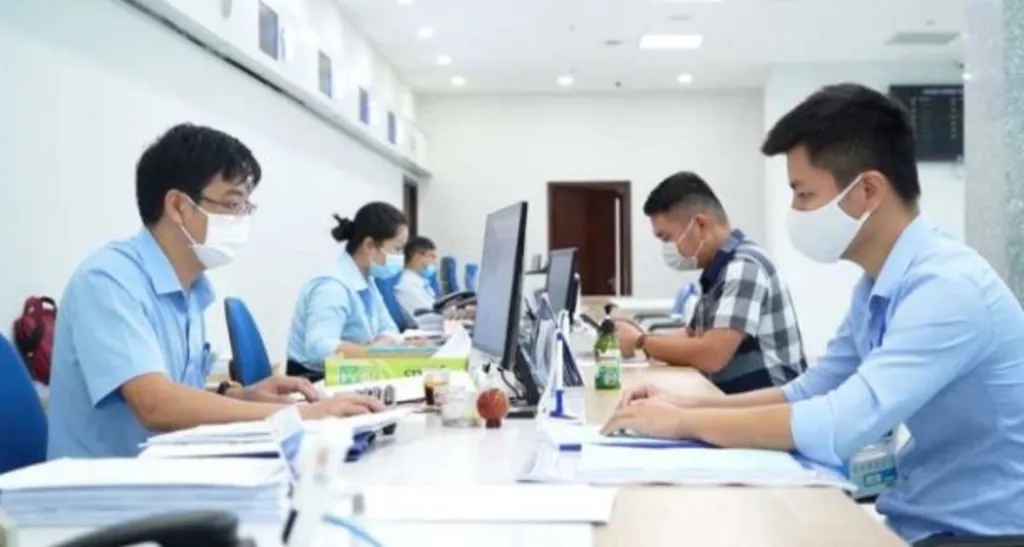 Society
Society

 |
| Hạ Long City pilots settlement of administrative procedures at post offices. Illustrative image. — VNA/VNS Photo |
{ "id": "uuBeoFzxZE", "type": "myToolImages", "data": { "data": "" } }
QUẢNG NINH — Authorities of Hạ Long City of the northern province of Hạ Long on August 15 piloted the implementation of administrative procedures being completed at post offices.
Under the pilot project, post offices are to process a number of district-level administrative procedures in Hạ Long.
The project aims to further improve the quality of services, making it easy for them to carry out administrative procedures, helping reduce the time for travel and minimise bureaucracy and negativity among officials and civil servants.
It is also expected to concretise guidelines and policies of the Party and State in digital transformation, building a digital government, economy and society; and promote the role of the public postal service in applying digitalisation in performing administrative services.
In the first phase, the project will focus on guiding and supporting organisations and citizens to carry out 47 administrative procedures in nine fields at four post offices in wards and communes, namely Hà Tu, Giếng Đáy, Việt Hưng, and Thống Nhất.
At these post offices, citizens will be guided by postal staff to submit administrative procedures through the provincial public service portal. They can also register for the receipt and return of administrative procedures at home.
In the second phase, the municipal post offices will be authorised to support the receipt of dossiers and return the results of the settlement of a number of administrative procedures under the district-level jurisdiction to organisations and individuals through all postal transaction stations in Hạ Long City and at home.
In the third phase, postal staff will replace civil servants in receiving documents and returning results at the city’s public administration centre for a number of simple administrative procedures which have been effectively implemented during the two first phases.
Quảng Ninh is striving to fulfil the work of digitisation; digital signatures and electronic storage of records and papers, results of administrative procedures that have been successfully resolved at all three levels by 2023.
By 2024, 100 per cent of the results of administrative procedure settlement will be signed with digital signatures and returned to the people via digital platforms.
Since June 1, digitisation and data extraction platforms have been piloted at the provincial public administration service centre, and in the sectors of justice; labour, invalids and society; education and training; healthcare; and information and communication.
Over 9,300 enterprises in Quảng Ninh have registered to use e-invoices.
Quảng Ninh has so far provided 1,712 Level-4 online public services out of the 1,832 administrative procedures.
The rate of administrative documents received and processed online via the online public service portal reached 62 per cent.
Up to 1,180 online public services at level 3-4 of the locality have been synchronised on the national public service portal.
Local authorities have also paid attention to removing difficulties facing businesses, developing modern facilities, and enhancing regional linkages towards promoting economic growth and luring more investment.
In the first half of 2022, Quảng Ninh reported 1,320 newly-established businesses, and 675 resuming operations. The province is home to 17,142 enterprises and their affiliated units which have a total registered capital of VNĐ382.5 trillion.
The locality posted an estimated growth rate of 10.66 per cent in Gross Regional Domestic Product (GRDP) in the first six months of this year, which is 2.64 percentage points higher than the rate in the same period of 2021.
The province aims to increase the per capita GRDP to over US$10,000 by 2025.
Priority will be given to drawing new-generation direct foreign investment (FDI) into processing, hi-tech manufacturing and clean industrial projects located in designated economic zones and industrial parks.
It is striving to become a modern industrial and service locality, an international tourism centre and one of the economic drivers of the country in the future. — VNS




